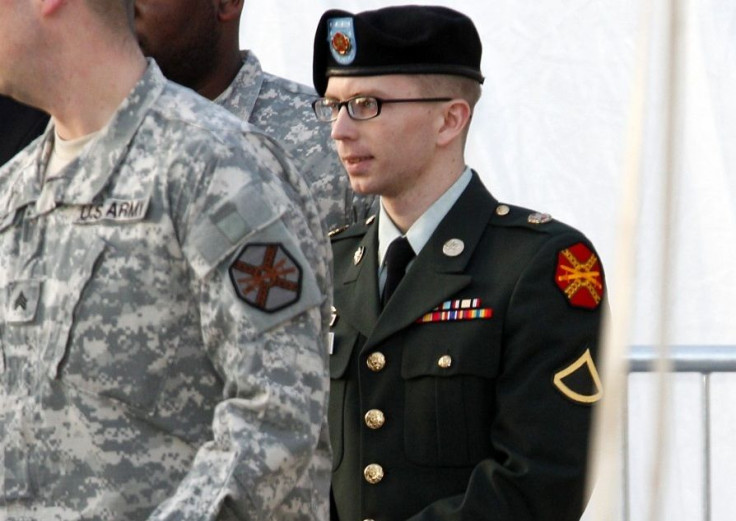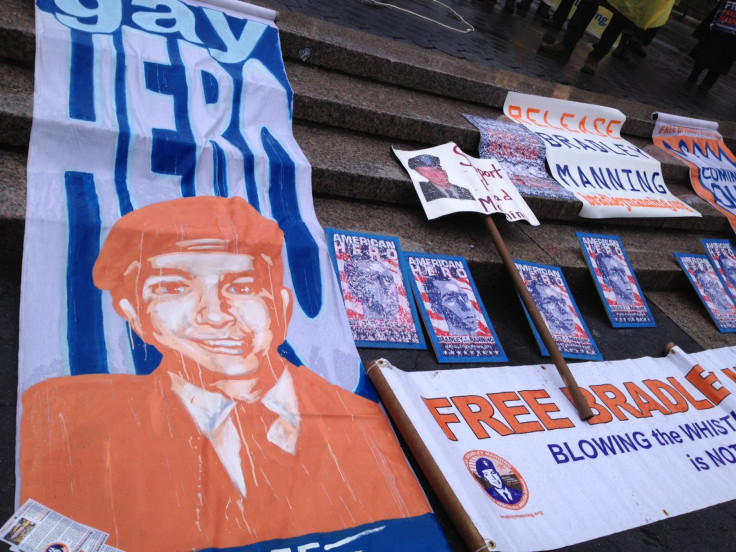Bradley Manning: Judge Refuses To Dismiss Charges Against WikiLeaks Whistleblower

After spending more than 1,000 days in pre-trial military detention, Pfc. Bradley Manning will not see his charges dismissed by the government. But 2013 will be the year he finally gets his day in court.
The alleged WikiLeaks whistleblower is back in a court this week for a four-day pre-trial motion hearing that will address two issues. The first -- a motion by Manning's attorney to dismiss all charges due to a lack of a speedy trial -- was denied by a Maryland judge early Tuesday, who determined the delays by the prosecution were excludable and justifiable.
Later this week, Manning will reportedly offer to plea guilty to reduced charges for 10 of the 22 counts against him.
Like civilians, military personnel have a constitutionally protected right to a speedy trial, as specified under Article 10 of the Uniform Code of Military Justice. The statute says the U.S. government is required to use “reasonable diligence” in proceeding to trial for anyone held in pre-trial confinement.
Manning's main lawyer, David Coombs, has accused the government of deliberately dragging its feet, noting that it took 530 days to simply elicit classification reviews of sensitive material.
A series of demonstrations were held in more than 70 locations on Saturday, which marked the 25-year-old’s 1,000th day in detention without trial. Manning is being prosecuted by the federal government for allegedly transmitting confidential information to anti-secrecy campaigner Julian Assange, who posted the thousands of documents, including diplomatic cables on his website WikiLeaks. Manning was arrested in May 2010 while working as an intelligence analyst at a U.S. army base outside of Baghdad.

In addition to exposing the existence of a video depicting American soldiers gunning down unarmed civilians and journalists in Baghdad -- a video now commonly known as “Collateral Murder” -- the WikiLeaks haul revealed the U.S. military had an official torture policy in Iraq, showed U.S. officials were told to cover up the evidence of child abuse by defense contractors in Afghanistan and exposed information indicating the Guantanamo Bay detention camp holds some civilians who are likely innocent.
While many people believe Manning’s exposure of atrocities qualifies him as an American hero, the U.S. government is arguing he is a traitor. The federal government is charging him with “knowingly [giving] intelligence to the enemy, through indirect means,” a treasonable offense that can be punished by death. (The prosecution, though, won't pursue the death penalty, making life in prison the worst sentence that Manning could be handed.)
In January, a military judge found Manning had suffered illegal pre-trial punishment during the nine months he spent in solitary confinement in a Marine Corps brig in Quantico, Va. She awarded a total of 112 days off any prison sentence he will receive if convicted.
Interestingly, the looming automatic spending cuts scheduled to take effect on March 1 could impede the government’s ability to rectify the cybersecurity flaws that ultimately allowed someone to obtain the information passed on to WikiLeaks, according to a report from Secrecy News.
© Copyright IBTimes 2024. All rights reserved.





















